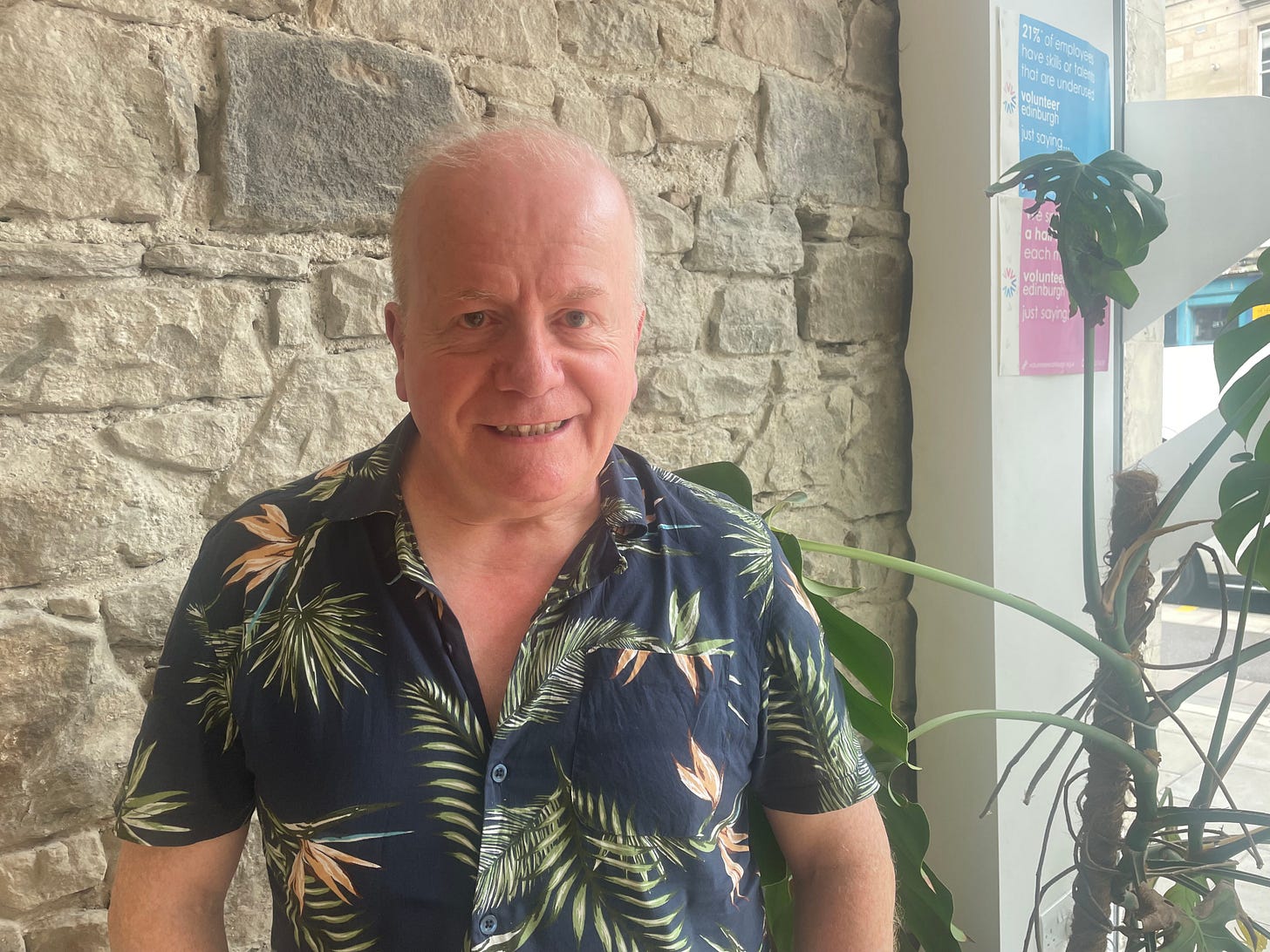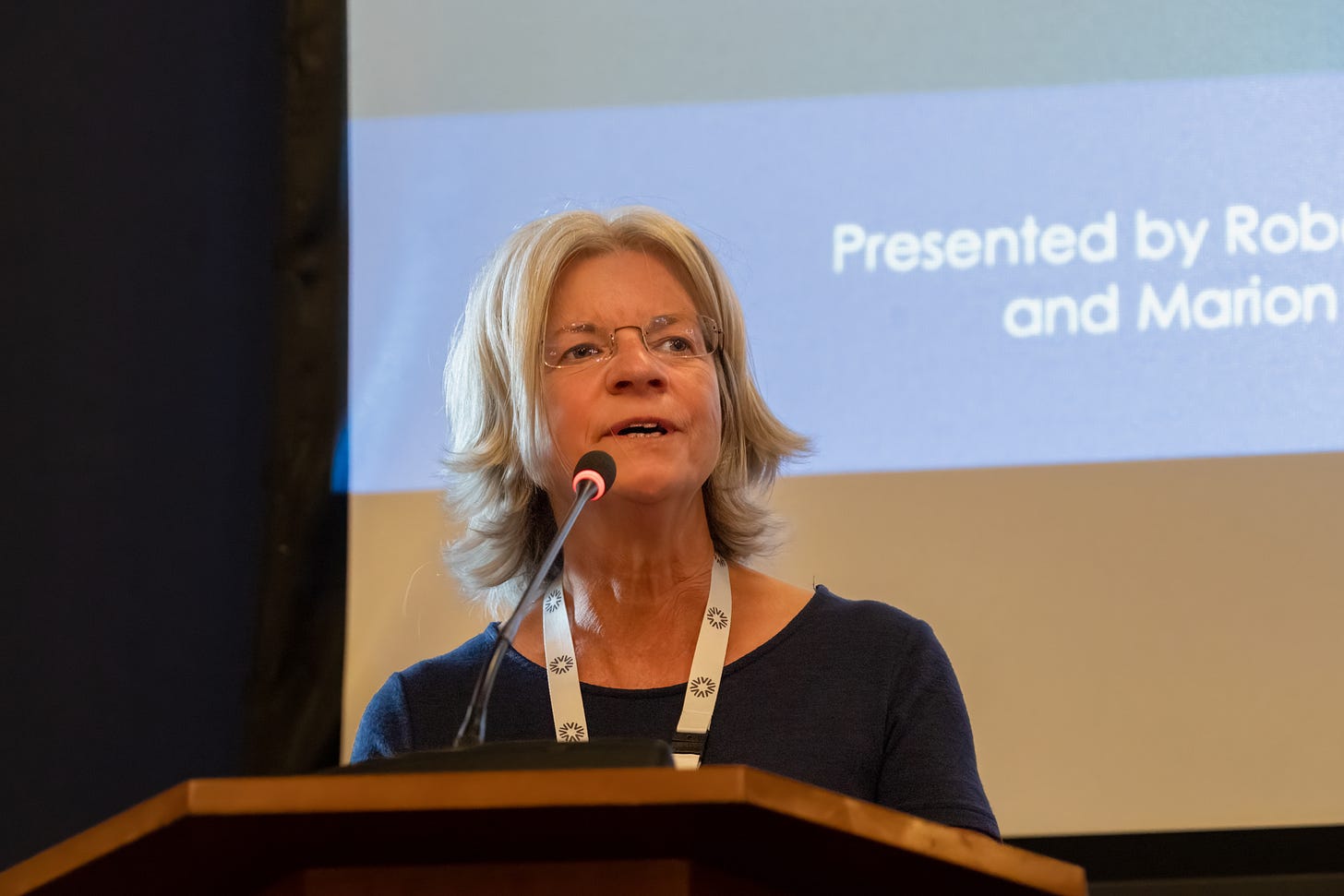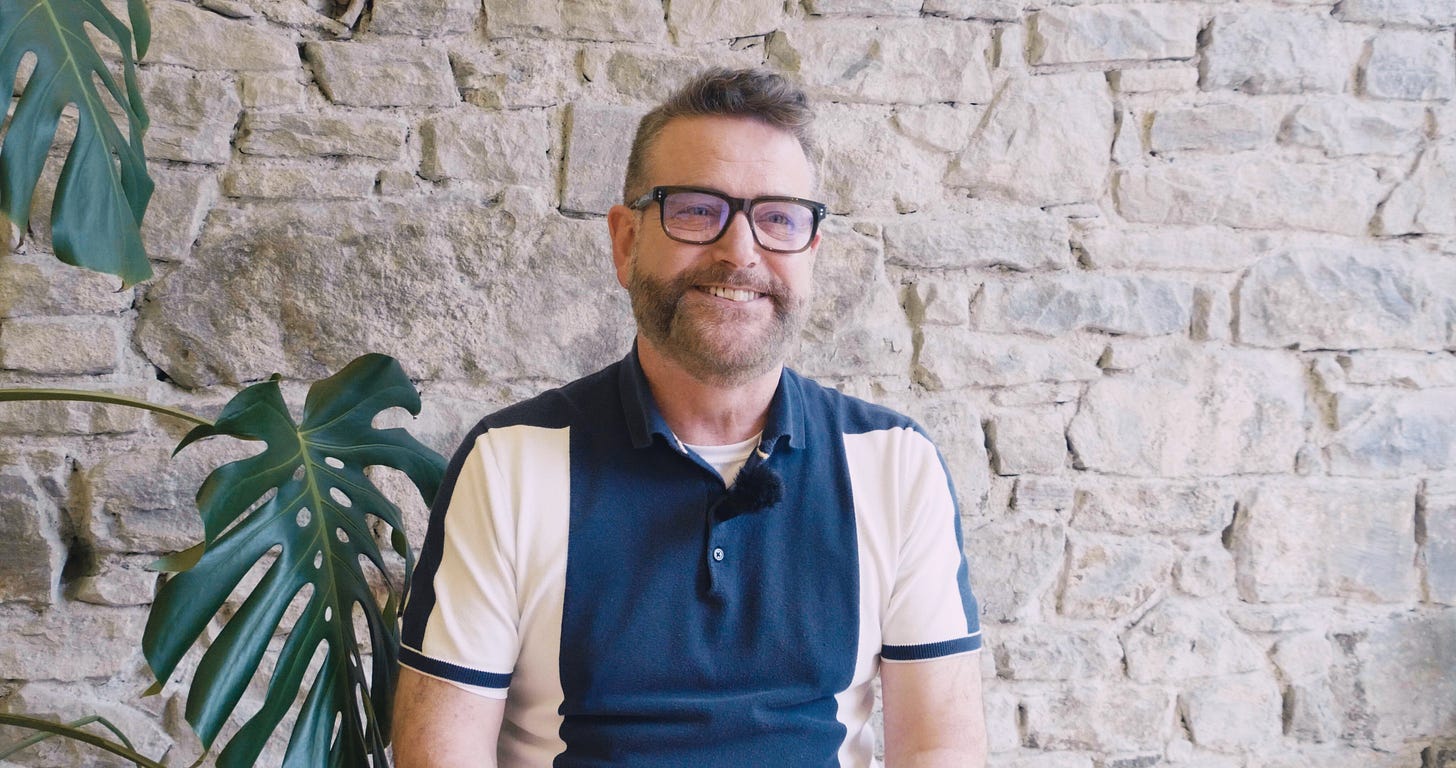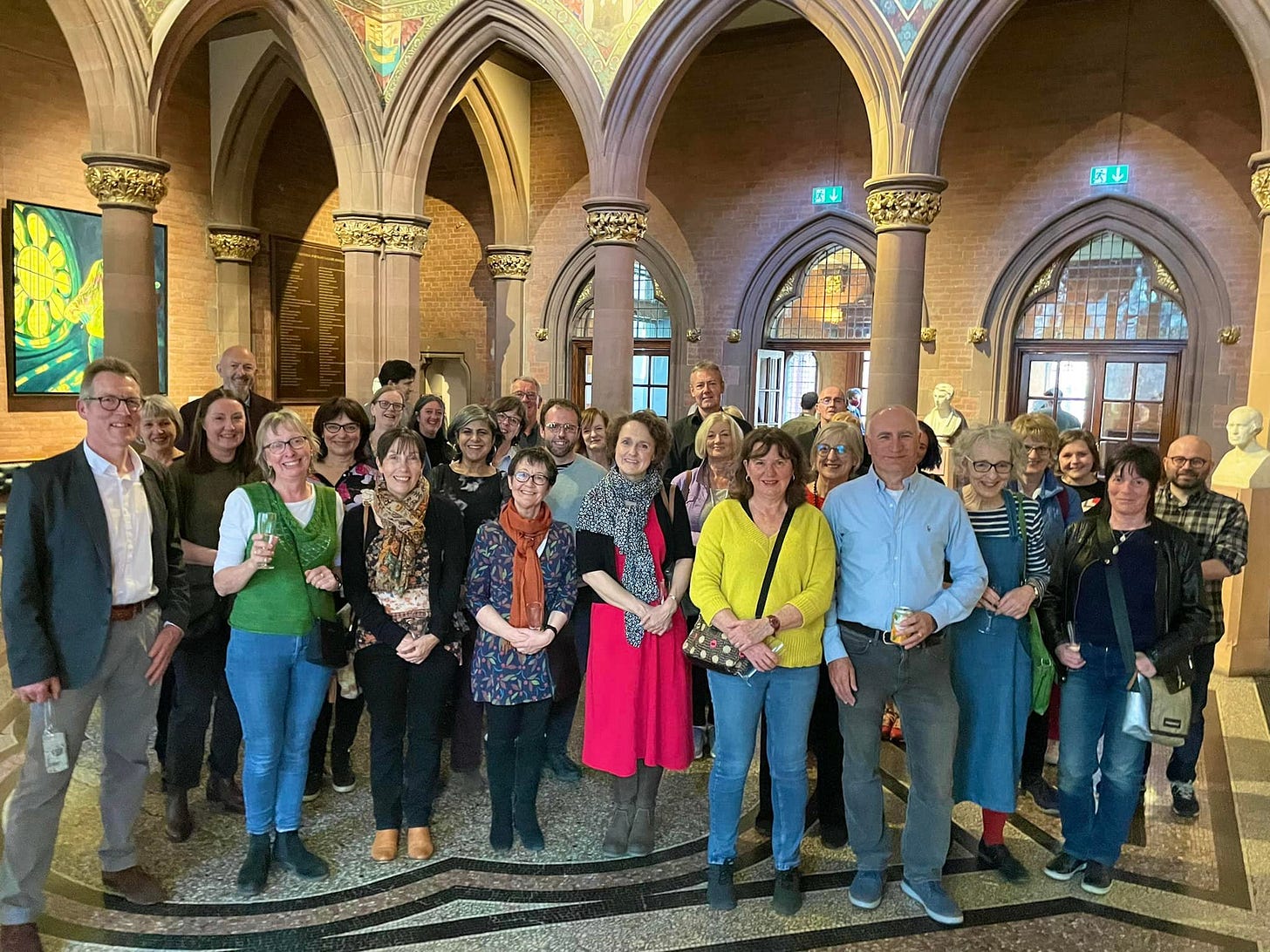'I've proved it's not the end. You can turn it around'
The groundbreaking volunteering project saving lives in the Capital
“I’ve proved that being diagnosed with a serious condition is not the end of the world. You can turn it around. Jesus saved my life but Volunteer Edinburgh has been vital to my recovery and where I am now.”
James Miller was just 17 when he was diagnosed with bipolar disorder, a mental illness characterised by extreme mood swings that shift between periods of highs and periods of lows. He had been working as a civil servant, in a job he was good at “but not happy”, when he got the devastating news.
That was back in 1972, when the condition was known as manic depression. He was put on medication to control the episodes and stabilise his moods.
He managed to keep working for another few years, even passing professional exams to rise up the career ladder. But he found the work stressful, which exacerbated his illness, and the combination of that and the effects of the prescription left him exhausted. Eventually he had to give up the job.
“I thought that was my life finished,” he says. “I just stayed at home with my mum and dad.”
He continued to live with his parents until they died, first his mother in 1988 and then his father in the early 1990s. It was around that time he decided come off the medication because of the side effects it was having after 20 years – nerve damage, extreme fatigue and general weakness.
He did it ‘cold turkey’ and also became a practising Christian.
“It’s all very well being better, healed from your mental health problems,” he says, “but I needed something to do.”
Then a chance meeting with Marion Findlay, director of services at Volunteer Edinburgh (VE), would truly change his life for the better. Thanks to her, he would go on to secure his “dream job”, as an escort for elderly people at the Northfield & Willowbrae Community Centre, a voluntary role he worked at for 12 years.
“Meeting Marion was a giant step. I had done a few volunteer jobs before that, but this was the big one. I was 53 at the time.
“I found, much to my surprise, that I was really good at it. I feel like I was created to do it.”
He has also volunteered as a befriender, helping to combat isolation, and worked with many dementia sufferers and as “eyes” for a blind man.
“I never went back to paid employment, but I’ve lived on my own since my father died in the 1990s, and contributed to society.
“It has been way beyond what I thought was possible. It has been like a career in volunteering. I like to help people – it’s good.”
James is not the only success story. Countless others have found giving their time and attention to others has been transformational.
Marion says: “Volunteering has a massive impact – it helps people improve their own lives while also helping others.”
James is 70 now and officially retired, though he rarely sits down. He continues to live an active and fulfilling life, helping out at his church and doing regular chores for friends and neighbours.
And he is just one of thousands of people in the capital who benefit from the work of VE, a non-profit which provides a wide range of support, direct services and advice for volunteers and the organisations using them.
A cornerstone of the city’s social fabric
Scotland would be much poorer, both socially and economically, without the army of unpaid helpers working across all sectors – think NHS, schools, lifeboats and mountain rescue teams, to name just a few organisations which could barely function without volunteers. Research suggests workplace volunteering is worth around £4.6 billion to the country annually.
VE is this year celebrating 25 years as an independent charity, but has a history stretching back more than double that time, to 1973.
Today it performs an infrastructure role, holding a city-wide database of volunteering opportunities – with around 500-600 positions on offer at any time – and operates a number of different schemes. As well as the Health and Well-being Service, the pathway James has been involved in, it runs Employability support, Youth Volunteering and a Community Taskforce, which responds to immediate and practical needs for a diverse range of people in the city.
VE chief executive Paul Wilson says: “Through a long-standing commitment to inclusion, empowerment and collaboration, VE has established itself as a cornerstone of Edinburgh’s social fabric, impacting individuals and communities alike.
“VE’s impact is evident in its ability to connect thousands of individuals with meaningful volunteer roles each year. By addressing barriers to participation, the organisation has created a supportive environment that enables volunteers to thrive and communities to benefit.”
Important role in an ever-changing city
The charity currently provides one-to-one support for more than 1,000 individuals every year, with more than 17,000 services delivered since the start of the Covid pandemic.
Projects include a massive programme of help for Ukrainian refugees who came to Edinburgh to escape war after their homeland was invaded by Russia in February 2022.
“They were fleeing for their lives,” Paul says. “They literally had nothing, no food or clothes or any belongings. But when bad things happen, people’s good side comes out. The local response was amazing.”
Gavin Sharp, lead officer and resilience specialist at City of Edinburgh Council, has commended the team’s work.
He says: “Over the past couple of years, VE have been nothing short of remarkable in the support they have provided to the city. Whether it was the support provided through the various lockdowns during the Covid-19 pandemic response, and supporting the thousands of displaced Ukrainians who have arrived since February 2022, VE have played a key role in responding to these unprecedented events.”
‘Volunteering has saved people’s lives’
Now, though, the Health and Well-being Service is at risk of being axed due to a review of funding, which comes from the Health and Social Care Partnership. The VE team has warned that losing this “lifeline” scheme, which supports those with mental health difficulties, disabilities, a history of offending and other challenges, could have a dreadful impact on both the volunteers and those who benefit from their efforts.
“If we lose the service it will cost more in the long run,” Paul insists. “It adds untold value to our city and saves lives.”
Findlay adds: “We hear many stories of how volunteering has saved people’s lives. People who come to us have often written themselves off, but that switch to meaningful activity makes a huge difference.
“Participants often go from being in constant receipt of support to giving it. They gain a sense of worth. Many manage to get back into full-time paid employment.
“We are the first volunteer organisation in the UK to have a dedicated health and well-being team. The users need a lot of help and guidance to find the right niche. The ideal is for them to thrive.
“What VE has helped achieve in the city is to prove that, with the right support, most people can be contributors. Volunteers are an important link in the chain of society.”
Incalculable value
The funding decision is due by the end of next month. But if the contact is not renewed, VE’s Health and Well-being Service will cease by the end of this year. The team and the users will be devastated if that happens.
“Edinburgh is much richer in spirit and in services because of the valuable contribution of volunteers,” Paul says. “The city would grind to a halt without them.”
Edinburgh is good at volunteering, he says proudly, with participation levels above the average seen in comparable local authorities in urban areas.
James says: “I would be really sad if VE was unable to continue its Health and Well-being service. It has been absolutely vital to my survival.
“My life is a complete success when you think what the outlook was, according to my medical file. From the late 1970s onwards, it looked like the doctors didn’t have a lot of hope for me. But they were proved completely wrong.
“There’s a bit of satisfaction in that. But it makes me wonder how many people have been written off and haven’t had the experience I’ve had.
“It’s very easy to just stay in the house and see nobody, and that would have led to even worse mental health problems. But through volunteering I have made a great network of friends.
“I can’t believe how responsible, efficient and confident I have become after all these years of agony and illness. When my mum died in 1988 she feared I could never look after myself.
“Even simple things like going out shopping were really hard. But volunteering gave me a routine and got me mixing with other people.
“It makes me sad that my parents didn’t get to see me like this. They only really saw me when I was very ill.”
And he is very positive for the future. He is thrilled to have just taken delivery of his first ever automatic washing machine because hand-wringing was playing havoc with the arthritis in his hands. He describes the appliance as “life-changing” and can’t believe he managed without one until now. “People don’t understand the thrill of it. It has made a huge difference to my life – if I had kept on hand-washing it could have left me disabled.”
He adds: “I gave up my volunteer job when Covid hit, but I still have a full life because I have things to do in the community. I get up in the morning and wonder how going to get everything done. I would not have thought I could have a life like this, physically active and useful.”







Great read and work!
An inspiring story!